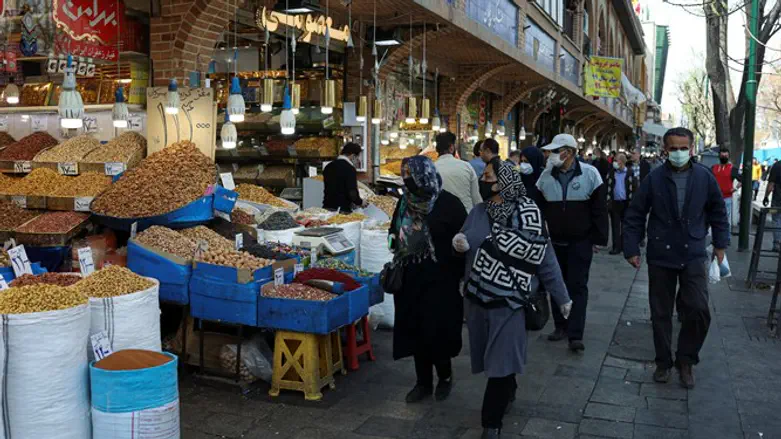
Iranian Jews enjoy ‘total freedom of religion’, Iran’s chief rabbi claimed in an interview Sunday, arguing that Jews in Iran are by some measures safer than Jews in Europe.
Rabbi Yehuda Garami, the chief rabbi of Iran, spoke with Al-Monitor in an interview published Sunday, discussing the Iranian Jewish community’s relationship with the Islamic republic, how the coronavirus pandemic impacted the community, and how Iranian Jews handle the difficult subject of their country’s hostile attitude towards the State of Israel.
While Iran’s Jewish community officially numbers some 8,000 people, Rabbi Garami said the population is in actuality far larger, numbering at least 20,000, and perhaps as many as 25,000.
“I estimate that there are between 20,000 and 25,000 Jews in the country,” said Rabbi Garami.
“Most of them live in Tehran, Shiraz, Esfahan and Karmanshah, though there are other, small communities too.”
Despite the Islamic republic’s strict enforcement of Islamic law in public and the lack of legal protections for human rights, Rabbi Garami said Iran’s Jewish community enjoys complete freedom of worship.
“We have total freedom of religion. All the synagogues are open, and Torah classes take place there. We have all sorts of educational institutions too, including elementary and middle schools.”
Rabbi Garami went on to say that the Iranian Jewish community’s relationship with the Muslim majority was good, comparing the Jewish community’s position in Iran favorably to that of Jewish communities in Europe.
“Our Muslim neighbors have a lot of respect for us as Jews living in Iran,” he said. “Unlike in Europe, for example, we do not have guards outside our synagogues and schools, and our personal safety is excellent. Of course, we sometimes encounter people who are anti-Semitic, but that happens everywhere. Most of the population respects us and lives in peace with us. What is important is that in Iran there is no such concept as organized attacks on Jews.”
Nevertheless, he did say wearing Jewish head coverings in public could draw unwanted – and unpleasant – attention.
“You can walk around with a yarmulke, and there are in fact people who wear a yarmulke. It just attracts attention, because it is unusual, and it can become unpleasant. On the other hand, it would not pose any danger to the person wearing the yarmulke.
Rabbi Garami described the community as “traditional”, with essentially no secular Jewish presence at all.
Regarding the Iranian government’s hostile position vis-à-vis the State of Israel, Rabbi Garami said local Jews liked to avoid ‘getting involved’ in disputes or politics between the two countries, and downplayed the role of religion in the ongoing hostilities.
He went on to criticize the Israeli government’s position vis-à-vis religion, and slammed the Tel Aviv municipality.
“The Israeli government doesn’t care about Judaism at all. Everything that they supposedly give to the Orthodox is because of some political deal or other, and not because of their religious approach,” said Rabbi Garami, before blasting the city of Tel Aviv for placing limits on ‘tefillin booths’ which encourage passersby to don phylacteries.